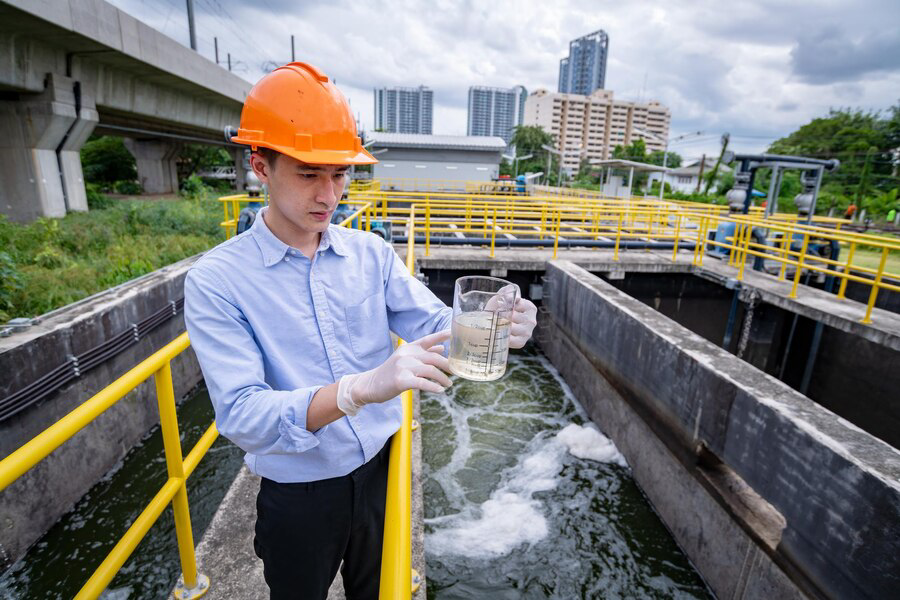Water is essential for life, and ensuring its quality is crucial for our health and well-being. Although tap water undergoes treatment to meet safety standards, it often retains trace contaminants that compromise its taste, odor, and safety. Water filters are essential tools in improving tap water quality by effectively reducing impurities such as chlorine, heavy metals, pesticides, and microplastics. These filters employ various mechanisms like activated carbon filtration, reverse osmosis, and ion exchange to remove harmful substances and enhance the overall drinking experience. By providing cleaner and safer water, water filters not only contribute to better hydration and digestion but also help prevent long-term health issues associated with contaminated water consumption. Incorporating a water filter into your household routine is thus a proactive step towards ensuring that every sip of water supports your health and well-being.
Understanding Tap Water Quality
Understanding Tap Water Quality is crucial for ensuring safe drinking water. Municipal facilities treat tap water to eliminate harmful bacteria, viruses, and chemicals, but residual contaminants such as chlorine, lead, mercury, pesticides, and microplastics can persist. These substances not only compromise the taste and odor of water but also pose potential health risks if consumed regularly. Even at low concentrations, these contaminants can accumulate in the body over time, impacting overall health. Therefore, despite initial treatment efforts, tap water quality can vary and may necessitate additional filtration to meet personal preferences and health standards. Recognizing these factors underscores the importance of employing effective water filters to enhance water quality and ensure a healthier drinking experience for households.

How Water Filters Work
Water filters operate on various principles depending on their type. The most common types include activated carbon filters, reverse osmosis systems, and ion exchange filters. Each type targets specific contaminants to improve water quality:
- Activated Carbon Filters: These filters use porous carbon to absorb impurities like chlorine, volatile organic compounds (VOCs), and sediment. They are effective in improving taste and odor by trapping contaminants that affect water’s aesthetic qualities.
- Reverse Osmosis Systems: This filtration method uses a semi-permeable membrane to remove dissolved solids, ions, and larger particles from water. It effectively reduces contaminants like lead, arsenic, fluoride, and nitrates, providing a thorough purification process.
- Ion Exchange Filters: These filters replace harmful ions with beneficial ones, such as exchanging calcium and magnesium ions with sodium ions. They are effective in softening water and reducing the presence of heavy metals.
Impact of Water Filters on Health and Well-being
Water filters have a profound impact on both health and well-being by ensuring cleaner, safer drinking water. By removing harmful contaminants such as chlorine, lead, and various chemicals, water filters reduce the risk of health issues related to consumption of these substances. Improved water quality not only enhances the taste and smell of drinking water but also promotes hydration, digestion, and overall bodily functions. Access to clean water is essential for maintaining optimal health, making water filters a crucial investment for every household. By prioritizing filtered tap water, individuals can enjoy the peace of mind that comes with knowing their drinking water is free from harmful impurities, supporting long-term health and well-being.
Benefits of Using Water Filters
- Improved Taste and Odor: Water filters enhance the taste and smell of tap water by removing chlorine, sulfur compounds, and other contaminants that contribute to unpleasant flavors and odors.
- Removal of Contaminants: Filters can significantly reduce or eliminate contaminants like lead, arsenic, pesticides, and pharmaceutical residues, which may be present in tap water and pose health risks over time.
- Healthier Drinking Water: By reducing the presence of harmful substances, water filters provide cleaner and safer drinking water, promoting better overall health and well-being for you and your family.
- Environmental Impact: Using water filters reduces reliance on bottled water, which helps minimize plastic waste and its environmental impact. It’s a more sustainable choice for households concerned about their ecological footprint.
- Convenience and Cost Savings: Having a water filter installed at home eliminates the need to buy bottled water regularly. It’s a convenient and cost-effective solution in the long run, saving money and reducing plastic consumption.
Cost-effectiveness Compared to Bottled Water
When it comes to drinking water, many people opt for bottled water as a convenient and seemingly cost-effective option. However, bottled water can be expensive in the long run. A study by the Environmental Protection Agency found that bottled water can cost up to 1,000 times more than tap water. Furthermore, the production, transportation, and disposal of bottled water have a significant environmental impact. In contrast, installing a water filter at home can provide clean drinking water at a fraction of the cost. With a one-time investment in a water filter, you can enjoy clean drinking water for years to come.
In addition to the financial benefits, a home water filter also eliminates the need for single-use plastic bottles, reducing waste and minimizing environmental harm. A home filter can be installed under the sink or at the faucet, making it easy to access clean drinking water whenever you need it. With a home filter, you can enjoy great-tasting water without breaking the bank or harming the environment.
Choosing the Right Water Filter for Your Home
With so many options available, choosing the right water filter for your home can be overwhelming. The first step is to determine your specific needs and budget. Consider factors such as the size of your household, your water quality concerns (e.g., lead, chlorine), and the type of contaminants you want to remove (e.g., bacteria, viruses). Research different types of filters, such as activated carbon, reverse osmosis, and ultraviolet (UV) light filters. Read reviews and compare features, including filter life expectancy, maintenance requirements, and certification from reputable organizations like NSF International or the Water Quality Association.
Once you’ve narrowed down your options, consider factors such as ease of installation, maintenance requirements, and warranty. Look for filters with easy-to-replace cartridges and minimal maintenance requirements. Additionally, check for certifications from third-party organizations that ensure the filter meets certain standards for performance and safety. By doing your research and choosing the right filter for your needs, you can enjoy clean drinking water while minimizing hassle and expense.
Maintenance Tips for Long-lasting Water Filtration
To ensure your water filter provides clean drinking water for years to come, regular maintenance is essential. First and foremost, follow the manufacturer’s recommended replacement schedule for the filter cartridges. Failure to replace the filter regularly can lead to decreased performance and potentially contaminated water. In addition to replacing cartridges on schedule, perform regular checks on your filter’s performance by tasting and smelling the filtered water. If it doesn’t taste or smell fresh, it may be time to replace the cartridge.
In addition to regular cartridge replacement, clean your filter’s pre-treatment components regularly to prevent clogging and maintain optimal performance. For example, if your filter has a sediment trap or pre-filter, clean or replace them as needed to ensure proper flow and filtration. Finally, consider upgrading your filter’s monitor or alarm system to alert you when it’s time for replacement or maintenance. By following these simple tips, you can extend the life of your filter and ensure continued access to clean drinking water.
Ensuring Sustainable Drinking Water Solutions
As consumers become increasingly aware of their environmental impact, sustainable drinking water solutions are becoming more important than ever. When choosing a water filter for your home, look for eco-friendly options that reduce waste and minimize environmental harm. Consider filters with reusable cartridges or those that use recyclable materials. Additionally, opt for filters that use minimal energy consumption and are designed with energy efficiency in mind.
To further reduce waste and promote sustainability, consider a filtration system that uses gravity-fed systems or those with minimal plastic components. When disposing of old filters or cartridges, ensure they are recycled responsibly to minimize waste sent to landfills. By choosing sustainable drinking water solutions and adopting eco-friendly habits when maintaining your filter, you can enjoy clean drinking water while supporting a healthier planet for future generations.
Conclusion
Water filters play a crucial role in enhancing tap water quality, ensuring cleaner and safer drinking water for households. By effectively removing contaminants like chlorine, lead, and sediment, these filters not only improve taste and odor but also contribute to better overall health. Choosing the right water filter system tailored to your home’s needs can lead to significant cost savings compared to purchasing bottled water regularly. Additionally, using water filters supports environmental sustainability by reducing plastic waste and minimizing the carbon footprint associated with bottled water production and transportation.
For expert advice on selecting and installing water filters in Chain Valley Bay, NSW, contact EZI Plumbing at +61 448467788. We specialize in providing reliable plumbing solutions to enhance your home’s water quality and ensure your family’s well-being. Let us help you make the switch to cleaner, healthier drinking water with our professional plumbing services and quality water filtration systems.

